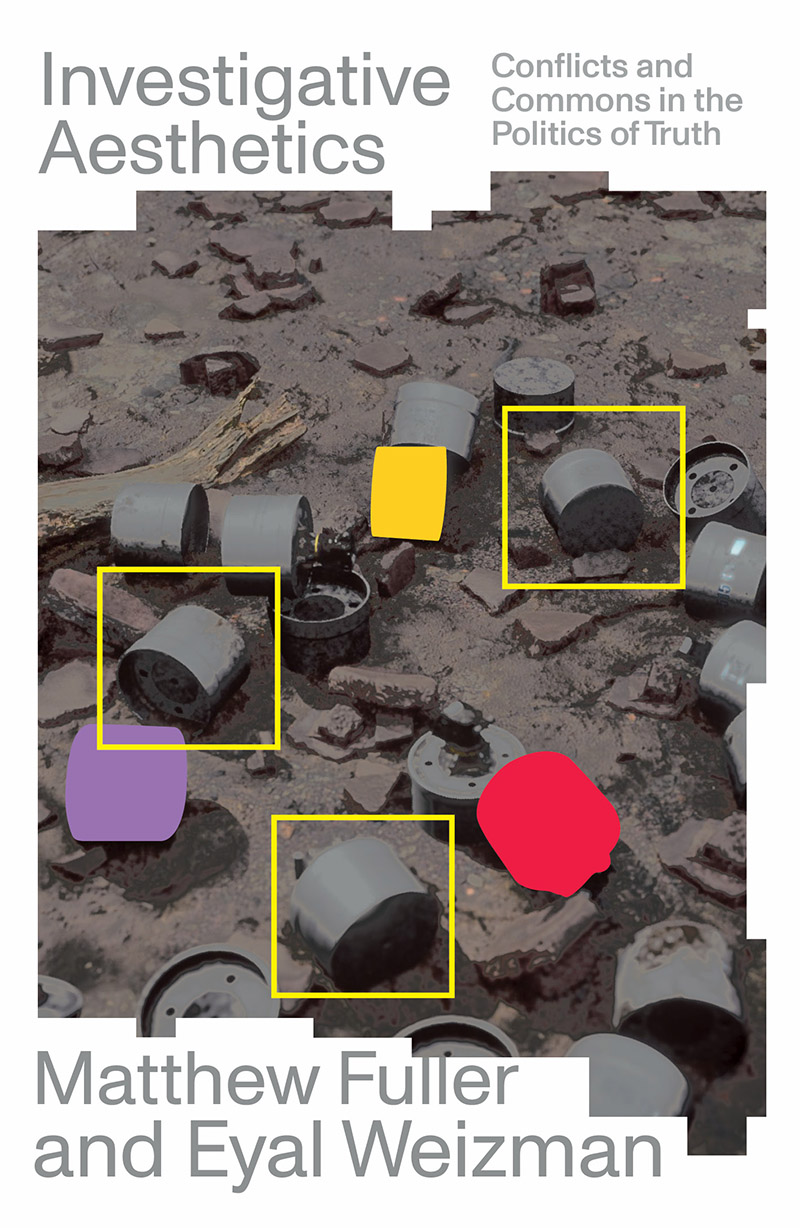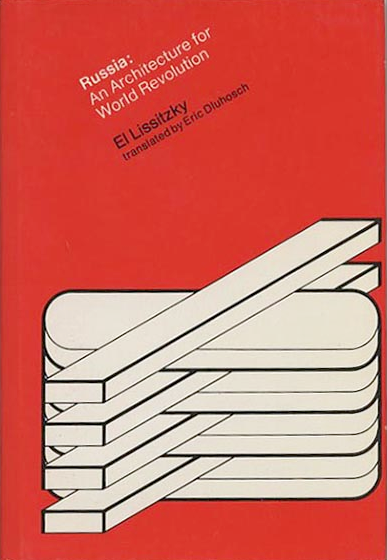Matthew Fuller, Eyal Weizman: Investigative Aesthetics: Conflicts and Commons in the Politics of Truth (2021)
Filed under book | Tags: · aesthetics, architecture, art, commons, corruption, environment, forensics, human rights, investigation, politics, technology, truth

“A new field of counterinvestigation in journalism, human rights, art and law
Today, artists are engaged in investigation. They probe corruption, human rights violations, environmental crimes and technological domination. At the same time, areas not usually thought of as artistic make powerful use of aesthetics. Journalists and legal professionals pore over opensource videos and satellite imagery to undertake visual investigations. This combination of diverse fields is what the authors call “investigative aesthetics”: the mobilisation of sensibilities associated with art, architecture and other such practices in order to speak truth to power.
Investigative Aesthetics draws on theories of knowledge, ecology and technology; evaluates the methods of citizen counter-forensics, micro-history and art; and examines radical practices such as those of WikiLeaks, Bellingcat, and Forensic Architecture. These new practices take place in the studio and the laboratory, the courtroom and the gallery, online and in the streets, as they strive towards the construction of a new common sense.
Matthew Fuller and Eyal Weizman have here provided an inspiring introduction to a new field that will change how we understand and confront power today.
To Nour Abuzaid for your brilliance, perseverance, and unshaken belief in the liberation of Palestine.”
Publisher Verso Books, London, August 2021
ISBN 9781788739085, 1788739086
259 pages
Review: Chris Hayes (Tribune, 2021).
EPUB (updated on 2022-11-21)
Comment (0)Superstudio: Supersurface: An Alternative Model for Life on Earth (1972)
Filed under video | Tags: · architecture, design
“Produced for the 1972 Museum of Modern Art exhibition, Italy: The New Domestic Lanscape, Supersurface was the first of five films planned by Superstudio as a ‘critical reappraisal of the possibility of life without objects’. Superstudio envisioned a ‘network of energy and information extending to every properly inhabitable area’. According to the artists, this network would bring about the destruction of objects as status symbols, the elimination of the city as an accumulation of formal structures of power, and the end of specialized and repetitive work as an alienating activity. ‘The logical consequence,’ they write, ‘will be a new, revolutionary society in which everyone should find the full development of his possibilities’. Although only two of the films were ever completed, Superstudio published storyboards and texts for the entire project, entitled Five Fundamental Acts: Life, Education, Ceremony, Love and Death. Addressing the first of these five acts, Supersurface presents ‘an alternative model for life on earth’ in which the ‘network of energy and information’ is represented by grids and images of technology superimposed on a collage of natural and inhabited landscapes peopled by families engaged in domestic and leisure activities.”
9:30 minutes
via Radical Architecture, HT joost rekveld
Commentary: Superstudio (MoMA catalogue, 1972), Cristiano Toraldo di Francia (n.d.), Ross K. Elfline (Footprint, 2011).
Comment (0)El Lissitzky: Russia: An Architecture for World Revolution (1930–) [German, English]
Filed under book | Tags: · architecture, city, russia, soviet union, urban planning

” El Lissitzky ‘s book is a classic in architectural and planning theory, as well as an important document in social and intellectual history. It contains an appendix of excerpted writings by his contemporaries – M. J. Ginzburg, P. Martell, Bruno Taut, Ernst May, M. Ilyin, Wilm Stein, Martin Wagner, Hannes Meyer, Hans Schmidt, and others – all of whom illuminate the architecture and planning of Europe and Russia during the 1920s. There are over 100 plates and drawings.”
First published as Russland. Die Rekonstruktion der Architektur in der Sowjetunion, Anton Schroll, Vienna, 1930.
New edition
Edited by Ulrich Conrads with Dietrich Helms
Ullstein, Berlin, 1965
Ullstein Bauwelt Fundamente series, 14
206 pages
English edition
Translated by Eric Dluhosch
Publisher MIT Press, November 1970
ISBN 0262120348
239 pages
Reviews: Albert J. Schmidt (Slavic Review, 1971), E.B. (J European Studies, 1971).
Russland. Die Rekonstruktion der Architektur in der Sowjetunion (German, 1930/1965, 12 MB)
Russia: An Architecture for World Revolution (English, 1970, 24 MB)

